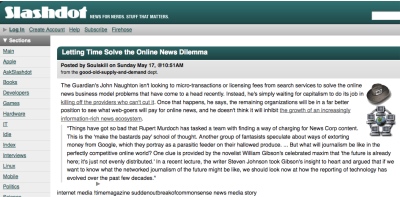This morning’s Observer column.
The police have two choices. Accept that digital technology will make them accountable for their actions or try to control the technology. In any normal society there would be no decision to be made. But since 9/11 the threat of global terrorism has given the state – and its security apparatus – carte blanche to take whatever measures it deems necessary. And it has imbued in every uniformed operative, from ‘Community Support’ officers and the bobby on the beat to the bored guy in the airport checking your toothpaste, the kind of arrogance we once associated only with authoritarian regimes.
You think I jest? Talk to any keen amateur photographer. As a group, photographers have been subjected to increasingly outrageous harassment by police and security operatives. (For a partial list of incidents see bit.ly/22VFRX). Try photographing a bridge, public building or a police car parked on a double-yellow line and you will have a goon demanding your camera, image card or film.
Better still, ask John Randall, a Tory MP who recently told the Commons how one of his Uxbridge constituents, a Mr Wusche, photographed properties he thought were in bad repair to pass on to the council…
Marina Hyde had a great column on the same subject in yesterday’s Guardian:
If there is anything to feel optimistic about today, perhaps it is the hope that we are witnessing the flowering of an effective inverse surveillance society. Inverse surveillance is a branch of sousveillance, the term coined by University of Toronto professor Steve Mann, and it emphasises “watchful vigilance from underneath”, by citizens, of those who survey and control them.
Not that turning our cameras on those who train theirs on us is without risk. Indeed, one might judge it fairly miraculous that the man was not forcibly disarmed of his camera phone, given that it is now illegal to photograph police who may be engaged in activity connected to counterterrorism. And as we know, everything from escorting Beyoncé to parking on a double yellow while you nip in to Greggs for an iced bun can now be justified with that blight of a modern excuse – “security reasons”.
Yet it will by now have dawned on even the most dimwitted Met officer that it is increasingly impossible for them to control the flow of information about their activities – to kettle it, if you will – no matter how big their army of press officers putting out misleading information in the immediate aftermath of any event may be.
Did the Met genuinely think they could prevent the emergence of a far more joined-up picture of Tomlinson’s passage through the City of London that afternoon, much as they thought they could suppress the details about Jean Charles de Menezes’s tragic final journey? If so, their naivety is staggering…
Some people have emailed to say that they find the closing prediction of my column (that police from now on will start confiscating cameras) implausible. Well, they clearly haven’t read Section 76 of the Counter-Terrorism Act, which came into force on 16 February. That makes it an offence to photograph any police officer or member of the armed services in ways that could aid terrorism. As Roger Graef (one of the wisest people I know in this field) pointed out yesterday much — if not most — policing of demonstrations these days is ‘justified’ not just under the Public Order acts, but anti-terror legislation which gives anyone in uniform authority to do or ban almost anything.
In fact, one of the great ironies of the Bob Quick case is that the photographer who took the picture could have been prosecuted under Section 76. And probably would have been if he hadn’t got the picture out quickly.
The bigger picture is that Osama bin Laden has won, hands-down. He provoked Western democracies into an obsession with security that justifies any degree of trampling on liberty. He stimulated the introduction of legislation (like the Patriot Act in the US) and the Counter-Terrorism Act in the UK which enables the State to treat ANY activity, including legitimate democratic activity (like protesting against the looting of the banking system, the launching of a war under false pretences, the banning of fox-hunting or airport expansion) not as a nuisance to the normal business of a city but as a threat to the State itself.

